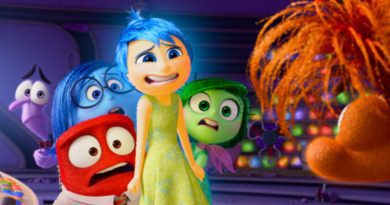Queer (2024) Review: Daniel Craig Delivers His Career-Best Performance in This Meandering But Intimately Shot Romantic Drama
Luca Guadagnino returns to queer cinema — unless you want to count the homoerotic tension seen in Challengers — after 2017’s Call Me by Your Name in the aptly titled Queer. Based on the late William S. Burroughs’ 1985 novella of the same name, Guadagnino transports us to the sweltering 1950s Mexico following Sinéad O’Connor’s eerily subdued “All Apologies” playing in the opening credits.
The protagonist is a middle-aged American expat named William Lee (Daniel Craig), who spends his time lounging at a dive bar, drinking and talking to strangers. Specifically young men that he tries to win them over for one-night stands. His routine is pretty much the same, day in and day out. The first thing I notice about the Mexico City setting isn’t the location that is typically envisioned or portrayed in most movies. Instead, it’s more of Guadagnino’s vision of turning the city into a self-contained bubble that looks sublimely artificial, which was filmed in Cinecittà Studios in Rome, Italy. This bubble in question reflects Lee’s dreamy world of hard drinking and intimate encounters.
One night while walking with Nirvana’s “Come As You Are” played in the background (a bizarre but admittedly interesting choice of song for such a 1950s-set movie), it’s like love at first sight upon seeing a young man named Eugene Allerton (Drew Starkey) passing by. He quickly falls for him but he’s not sure whether Allerton is a queer, judging by the female companion that the latter has always been chatting with in the bar.
Lee can’t stop thinking about him and it’s a matter of time before he develops the courage to break the ice. They eventually spend time together talking, drinking and laughing before they finally sleep together. Only this time, it isn’t a one-night stand like Lee always does. He has a deep feeling for him but here lies the biggest question: Does Allerton feel the same way?
Guadagnino, working from Justin Kuritzkes’ adapted screenplay, explores the intimacy between Lee and Allerton, suggesting their relationship is merely physical rather than emotional attachment. The movie also delves into Lee’s addiction to opioids which he’s constantly depending on to get by every day. Beyond his sexual conquest, he’s been yearning for love to fend off his underlying state of loneliness, despair and self-destructive behaviour. Meeting Allerton seems like a gateway for him to finally embrace a fresh start except it’s not.
For a while there throughout the first chapter of Queer, it looks promising not only from Craig’s career-best and vanity-free performance like you have never seen him before but also Guadagnino’s mesmerising direction depicting the queer dynamics between Lee and Allerton. Sayombhu Mukdeeprom’s atmospheric cinematography, coupled with Trent Reznor and Atticus Ross’ moodily eclectic score complements the feel and look of the movie.
But once the movie shifts focus to South America in chapters two and three, the story begins to dwindle. This is especially true with Lee’s subsequent quest for locating the experimental drug known as yagé because of his interest in experiencing telepathy. The second half of the movie has become less of the queer subject but more of a psychedelic exploration into Lee’s state of mind, resulting in a few trippy and stomach-churning moments straight out of David Lynch and David Cronenberg’s visual playbook.
The movie also introduces the eccentric botanist Dr Cotter played by Leslie Manville in a small but memorable role, who looks unrecognisable through extensive makeup. I admit the tonal shift halfway through the movie is interesting but the overall execution is rather a mixed result with the story growing increasingly fragmented as if wanted to mirror Lee’s drugged-out condition.
Not to mention Guadagnino’s self-indulgent direction reminds me of how he veers off too far into the experimental filmmaking territory seen in the ambitious but drawn-out Suspiria remake. This, in turn, makes the nearly 140-minute length feel like it’s overstretched for its own good. But despite the shortcomings, Queer remains a reasonably bold and well-acted drama.





